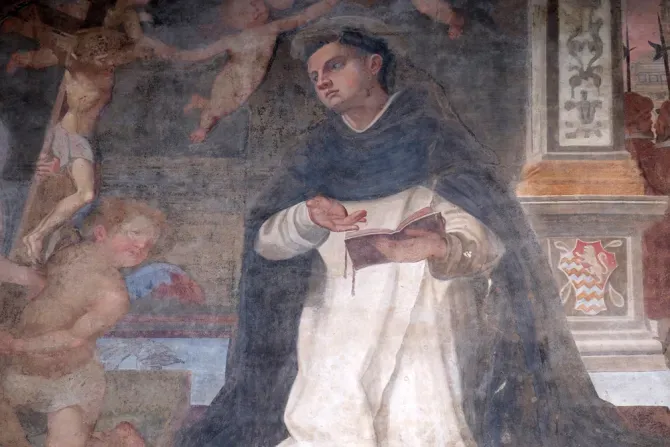Vatican, 15 July, 2023 / 8:12 pm (ACI Africa).
The Vatican is granting a plenary indulgence to anyone who participates in the two years of jubilee celebrations of St. Thomas Aquinas leading up to the 800th anniversary of his birth.
Beginning with the 700th anniversary of Aquinas’ canonization on July 18, the Dominican Order is celebrating three significant anniversaries of “the Angelic Doctor” during the jubilee.
Aquinas was canonized as a saint on July 18, 1323, by Pope John XXII. The Church will mark this 700th anniversary next Tuesday with a Mass at 6:30 p.m. in Fossanova Abbey, the abbey about 60 miles south of Rome where Aquinas died. Pope Francis has designated Cardinal Marcello Semeraro, the prefect of the Vatican’s saints office, as his special envoy for the Mass.
 Aerial view of Fossanova Abbey located in Priverno, in the province of Latina, Italy. Credit: Stefano Tammaro/Shutterstock
Aerial view of Fossanova Abbey located in Priverno, in the province of Latina, Italy. Credit: Stefano Tammaro/Shutterstock
On March 7, 2024, the Church will commemorate the 750th anniversary of Aquinas’ death. The theologian died in 1274 while on his way to the Council of Lyons. He fell ill during the journey and stopped at the Cistercian abbey of Fossanova.








